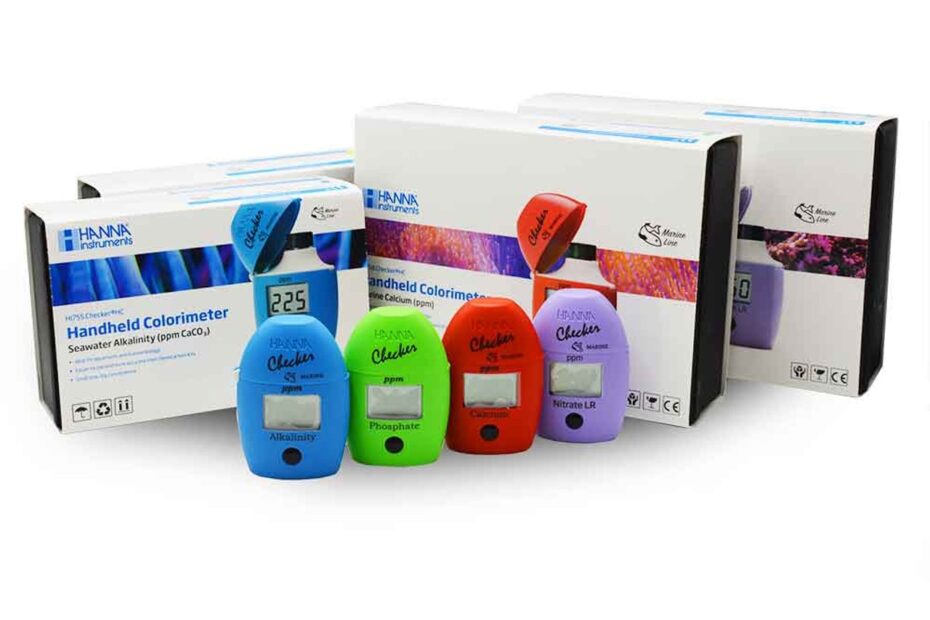Testing the water parameters of a saltwater aquarium is crucial for the health and well-being of its inhabitants. The marine environment, especially in a reef tank, requires a delicate balance of different elements and compounds. Water testing kits provide the tools necessary to monitor and maintain this balance. Here’s a rundown of the essential water testing kits for saltwater aquariums:
- Importance: This measures the salt concentration in the water. Proper salinity is essential for osmoregulation in marine organisms.
- Tools: A refractometer or a hydrometer.
- Importance: Indicates the acidity or alkalinity of the water. Marine fish and corals typically prefer a pH between 8.1 and 8.4.
- Tools: Liquid test kits or electronic pH meters.
- Importance: Ammonia is a toxic waste product from fish and organic decomposition. Even small amounts can be harmful.
- Tools: Liquid test kits or test strips.
- Importance: Like ammonia, nitrite is toxic and is a byproduct of the nitrogen cycle.
- Tools: Liquid test kits or test strips.
- Importance: Elevated nitrate levels can promote algae growth and can be harmful to some marine organisms.
- Tools: Liquid test kits or test strips.
6. Alkalinity (or Carbonate Hardness):
- Importance: Alkalinity acts as a buffer, helping to stabilize pH levels. It also plays a role in coral calcification.
- Tools: Liquid test kits or titration kits.
- Importance: Essential for coral, clams, and some algae, as they use it to form calcium carbonate skeletons and shells.
- Tools: Liquid test kits or titration kits.
- Importance: Works in tandem with calcium and alkalinity. It’s essential for maintaining the correct balance of calcium and alkalinity in reef tanks.
- Tools: Liquid test kits or titration kits.
- Importance: Elevated phosphate levels can lead to problematic algae growth. In reef tanks, high phosphate can hinder coral growth.
- Tools: Liquid test kits or test strips.
- Importance: Can promote the growth of diatoms, a type of brown algae.
- Tools: Liquid test kits.
- Importance: Some invertebrates, like shrimps and crabs, use iodine for molting. Corals also use iodine, but its exact role is not fully understood.
- Tools: Liquid test kits.
- Importance: Used by corals and other invertebrates to grow their skeletons.
- Tools: Liquid test kits.
Regular Testing: For new aquariums undergoing cycling, frequent testing (every few days) for ammonia, nitrite, and nitrate is crucial. Once the tank is established, you can reduce the frequency but should still regularly test these parameters, especially after adding new livestock or observing changes in the tank’s health.
For reef tanks, regular testing of calcium, alkalinity, and magnesium is essential, often weekly or bi-weekly, to ensure corals have the right environment to grow.
Conclusion: Maintaining the correct water parameters in a saltwater aquarium is a delicate balance. Regular testing, coupled with the appropriate actions based on test results (like water changes, dosing, or adjusting equipment), ensures a thriving marine environment.

